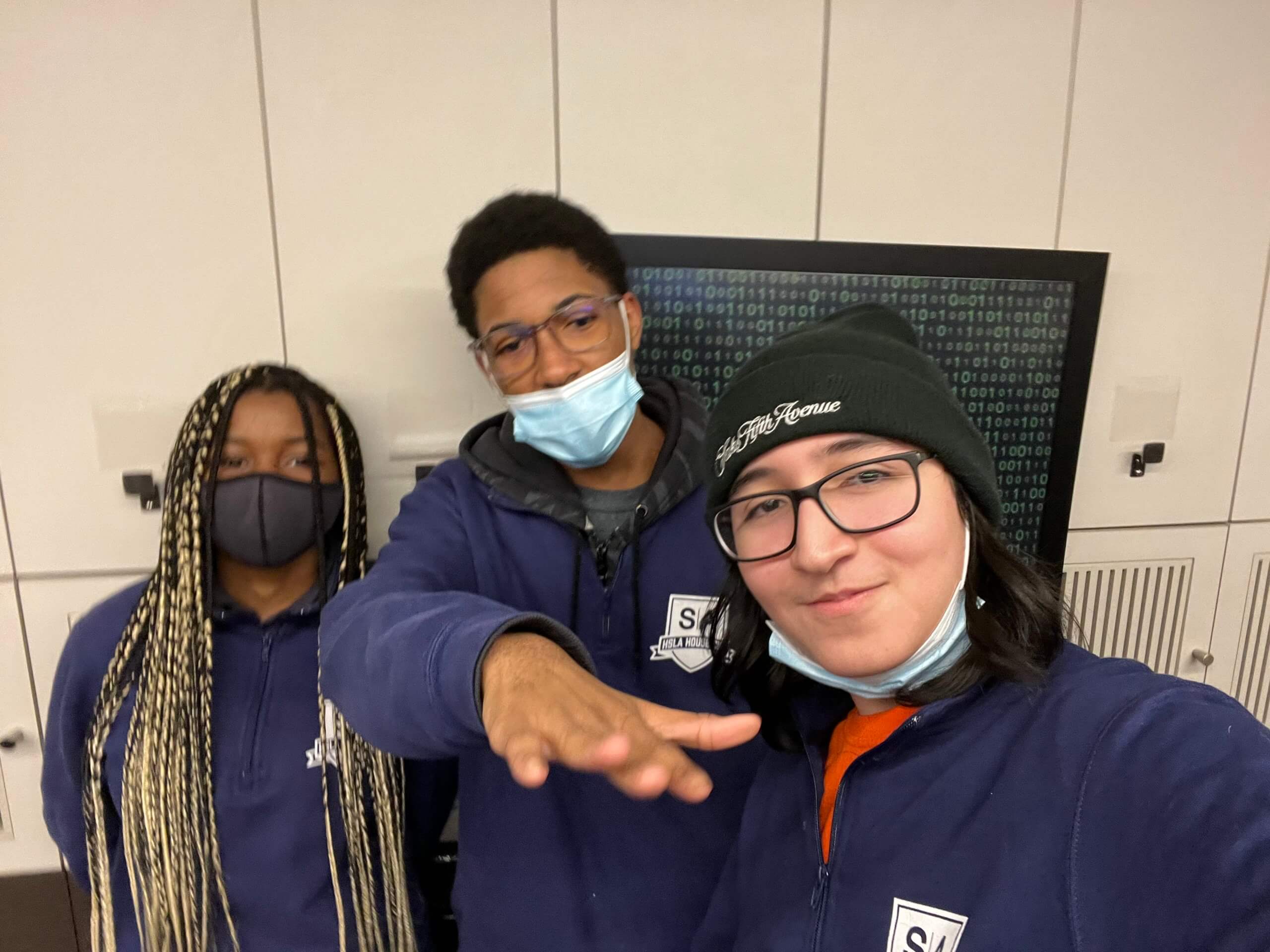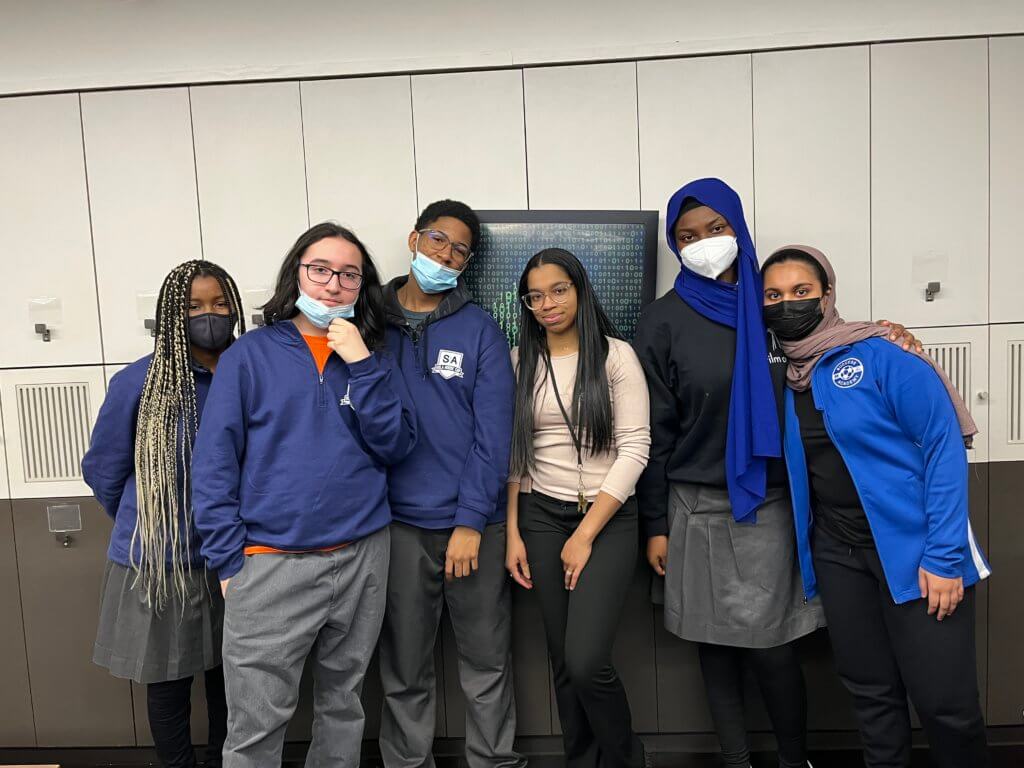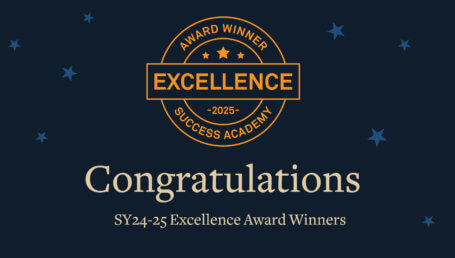
High schoolers at Success Academy have the opportunity to jump right into college courses before they even graduate. In addition to taking on a robust selection of Advanced Placement classes, some students also pursue SA’s Dual Enrollment programs at Columbia and NYU. We’ve also partnered with the online college course platform edX and Georgia Institute of Technology to provide select STEM Academy scholars access to an introductory course for first-year computer science majors.
What’s it like to study at the college level while still in high school? We asked HSLA-MA sophomore Michael Solano to share a little about his interest in computer science and what he liked about tackling Python programming in the Georgia Tech course.
What sparked your interest in computer science?
As a kid I played a lot of video games, and I became really interested in how things actually worked behind the scenes. In fifth grade, one of the final units of science for the year was computer science — and I was pretty stoked because I immediately hoped to be able to make my own game. That didn’t happen, but I learned the basics of HTML. Skip to seventh grade computer science: for our final project we had to make our own website. I made a homepage that I was proud of, and it ended up being one of the best ones my teacher had seen that day. I think from that day onward I kind of understood my potential and how far this could go; whenever someone used to ask me what I wanted to be when I grew up, I never really had an answer —and now I did.
How did you end up in the Computing in Python I course?
At the beginning of freshman year I was invited and accepted into the STEM Academy at HSLA-MA, which is a set of courses for students who are really passionate about a specific subject area and want to take on college-level study so that they can major in STEM. That first year, I took electrical and mechanical engineering courses, but then I was invited to apply for Computing in Python I — and I was accepted.
What is it like to learn Python asynchronously through the edX platform?
I honestly thought it was surprisingly simple. The edX courses are usually formatted in the same way, with sets of videos with corresponding (ungraded) exercises (multiple choice or Coding problems), and then corresponding graded problem sets to test what you’ve learned. One of the nice things about edX is that you can really try any problem as much as you want when it comes to the problem sets. Even on tests you get at least two tries on all multiple choice and infinite tries on any coding problem.
A lot of college courses have teaching assistants, who are important resources for students. How was your experience working with them at Georgia Tech?
One thing I like is how they really encourage you to try your best, but won’t help you on anything you haven’t attempted on your own first, which honestly really encourages me to try a bit harder on some problems where I find myself stuck. I would really encourage anyone who wants to take the course to be incredibly mindful of office hours as they help a lot!
How has this course furthered your interest in computer science?
The introduction to a whole new computing language was super interesting to me. As you learn more, you begin to see more of the real world applications of coding. I feel like this course has made me want to not only continue to develop my knowledge in Python, but other languages as well, which is what I’m doing this summer as I attend Upperline Code as part of my SA Summer Experience fellowship.
Do you plan to continue in Computing in Python II?
For sure! I think Python is a very interesting language because it encourages a lot of logical thinking skills that I think are very useful and interesting to learn. I also just want to be able to challenge myself academically.
Who should consider applying for this program? What types of interests should they have? What types of skills should they have coming into the course?
It’s an amazing opportunity to be accepted; you’re basically getting a free college course done and out of the way with, which looks really good on college applications! I would recommend this course to those who wish to challenge themselves, and not just academically. If you think you struggle with procrastination, take this class! It gets you into the habit of complying with deadlines — you have everything from the start — all you need to do is just get it done! Dedicate a few hours to watching the videos or doing practice problems with your friends, go to office hours, help each other during lunch, do it whenever you feel like you need to. One of the best pieces of advice I can give is simply to not procrastinate. Coming from experience, if you end up falling behind one or more problem sets a few days before a test, you’re not going to succeed. The course is a test of consistency. Deadlines are incredibly lenient, often giving you MONTHS to complete a unit!
If I’m being honest, for the first semester the course stayed pretty simple. Later content gets more challenging as concepts get more complex. However, if you truly dedicate yourself to learning the content, taking notes, and putting in the work, you’ll be just fine.

Michael, second from left, with other STEM enthused classmates.










